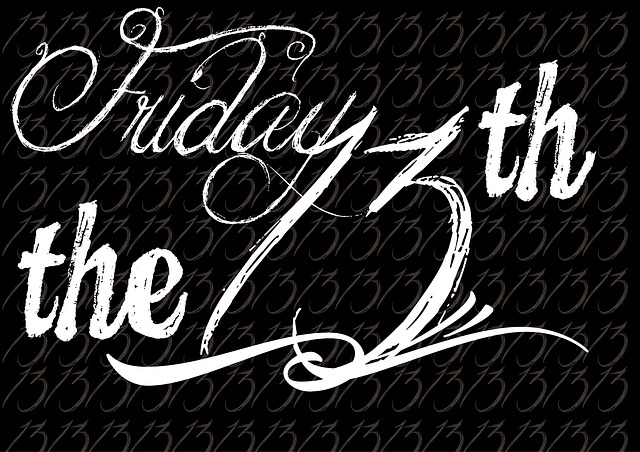
Interesting facts to share with your classroom about Friday 13th.
Friday 13th has long been associated with bad luck, superstition and disaster. How did this unfortunate accolade come to be, and where do these superstitions originate? The fear of this date is called ‘paraskevidekatriaphobia’, and fear of the number thirteen, is called ‘triskaidekaphobia’.
The superstition behind Friday 13th
In Western society, Friday has been considered an unlucky day in its own right. In biblical text, Friday was the day that Jesus was crucified and also the day that Adam and Eve ate the forbidden fruit in the Garden of Eden. The idea of the number thirteen being unlucky may go back to Norse mythology, where a Norse myth depicts the story of a dinner party featuring 12 Norse gods where an ‘unlucky’ 13th guest, the Norse god Loki, shows up uninvited. Loki shoots the god of joy and happiness, Balder, and plunges the world into darkness. Another ‘unlucky’ 13th guest is Judas, who, at the last supper, ultimately betrays Jesus. These religious and mythological figures may also have contributed to our negative association with the number thirteen.
Is Friday 13th really unlucky?
In reality, can we really say that Friday 13th is more unlucky than any other date in the calendar year? Scientifically and statistically speaking, there is no concrete evidence to point to the fact that this is the case. Many studies have shown that Friday the 13th has little or no effect on events like accidents, hospital visits, and natural disasters. In fact, in Finland, Friday 13th is the day that the Finnish government observe National Accident Day, which aims to increase awareness around safety on the roads, at home, and in the workplace.
Friday 13th interesting facts:
- British filmmaker Alfred Hitchcock, the master of suspense, was born on August 13th, 1899.
- October 1989 – the U.S. stock exchange suffered a major crash. The day is sometimes referred to as ‘Black Friday’.
- October 1307 – King Philip IV of France ordered his officers to raid the homes of the Knights Templar, who were warrior monks during the Crusades. Hundreds of the Knights Templar were subjected to excruciating torture to force confessions out of them. More than a hundred succumbed to death in the process.
- A month must begin on a Sunday, for the 13th to fall on a Friday.
- Hotel and hospital buildings often skip the 13th floor, and some airports do not have a gate number ‘13’. Airlines, such as KLM, Air France, Lufthansa, and Continental Airlines, do not have a 13th row on their aircraft.
All in all, the superstition surrounding Friday 13th can be attributed to a number of different myths, legends and unlikely coincidences. Despite having well developed, complex brains with rational minds, the prevalence of superstition is still present across all cultures and continents. It seems superstition and the belief in mystery, magic and the threat of danger is the tie that binds us together, and allows people to use their imagination to interpret weird and strange events around them.
